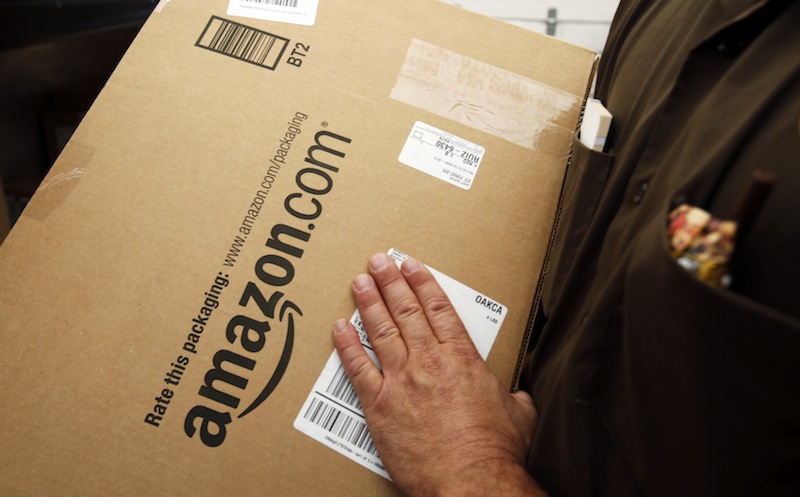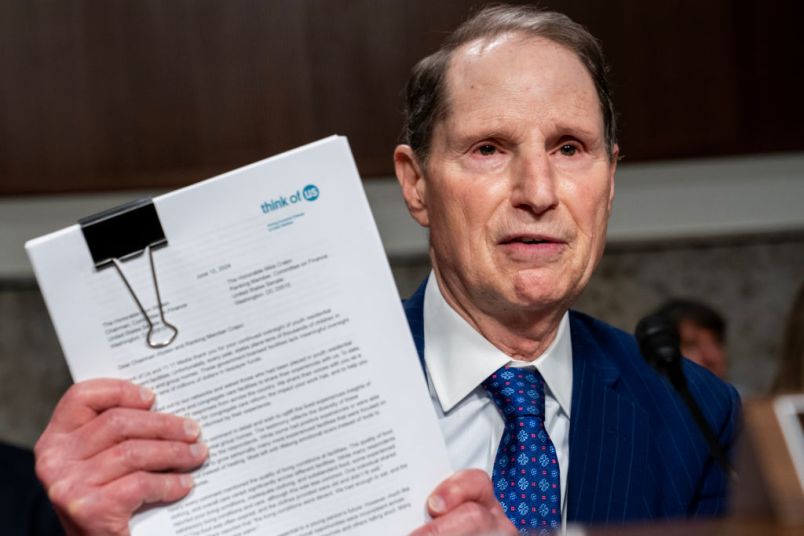WASHINGTON (AP) — Attention online shoppers: The days of tax-free shopping on the Internet may soon end for many of you.
The Senate is scheduled to vote Monday on a bill that would empower states to collect sales taxes for purchases made over the Internet. The measure is expected to pass because it has already survived three procedural votes. But it faces opposition in the House, where some Republicans regard it as a tax increase. A broad coalition of retailers is lobbying in favor of it.
Under current law, states can only require retailers to collect sales taxes if the store has a physical presence in the state.
That means big retailers with stores all over the country like Walmart, Best Buy and Target collect sales taxes when they sell goods over the Internet. But online retailers like eBay and Amazon don’t have to collect sales taxes, except in states where they have offices or distribution centers.
As a result, many online sales are tax-free, giving Internet retailers an advantage over brick-and-mortar stores.
The bill would empower states to require businesses to collect taxes for products they sell on the Internet, in catalogs and through radio and TV ads. Under the legislation, the sales taxes would be sent to the states where a shopper lives.
The measure pits brick-and-mortar stores against online services.
As Internet sales have grown, “It’s putting pressure on the brick-and-mortar competitors and it’s putting pressure on state and local sales tax revenues,” said David French, senior vice president of government relations for the National Retail Federation. “It’s time for Congress to create a level playing field so that all retailers are treated fairly.”
On the other side, eBay says the bill doesn’t do enough to protect small businesses. Businesses with less than $1 million in online sales would be exempt. EBay wants to exempt businesses with up to $10 million in sales or fewer than 50 employees.
“Complying and living under the tax laws of 50 states is a major undertaking because the process of complying with tax law goes far beyond just filling out the right forms,” said Brian Bieron, eBay’s senior director of global public policy.
“You have to deal with the fact that all of these government agencies can audit you and can question you and can actually take you into court and sue you if they think you are doing something wrong,” Bieron said.
Supporters say the bill makes it relatively easy for Internet retailers to comply. States must provide free computer software to help retailers calculate sales taxes, based on where shoppers live. States must also establish a single entity to receive Internet sales tax revenue, so retailers don’t have to send them to individual counties or cities.
Opponents say online businesses would still have to use resources to account for the taxes they collect and to periodically send the money to each state.
Support for the legislation crosses party lines: The main sponsor, Sen. Mike Enzi, is a conservative Republican from Wyoming. He has worked closely with Sen. Dick Durbin, a liberal Democrat from Illinois.
Supporters say the bill is not a tax increase. In many states, shoppers are required to pay unpaid sales tax when they file their state income tax returns. However, states complain that few taxpayers comply.
In the Senate, lawmakers from three states without income taxes are leading the opposition. They argue that businesses based in their states should not have to collect taxes for other states.
Montana, New Hampshire, Oregon and Delaware have no state or local sales taxes, though Delaware’s two senators support the bill.
Delaware has long benefited from shoppers in neighboring states visiting Delaware to take advantage of the tax-free shopping, said Sen. Chris Coons, D-Del. Tax-free Internet shopping threatens Delaware’s advantage, he said.
Many governors — Republicans and Democrats — have been lobbying the federal government for years for the authority to collect sales taxes from online sales.
The issue is getting bigger for states as more people make purchases online. Last year, Internet sales in the U.S. totaled $226 billion, up nearly 16 percent from the previous year, according to Commerce Department estimates.
States lost a total of $23 billion last year because they couldn’t collect taxes on out-of-state sales, according to a study by three business professors at the University of Tennessee. About $11.4 billion was lost from Internet sales; the rest was from purchases made through catalogs, mail orders and telephone orders, the study said.
The study was done for the National Conference of State Legislatures.
___
Follow Stephen Ohlemacher on Twitter: http://twitter.com/stephenatap
Copyright 2013 The Associated Press.










